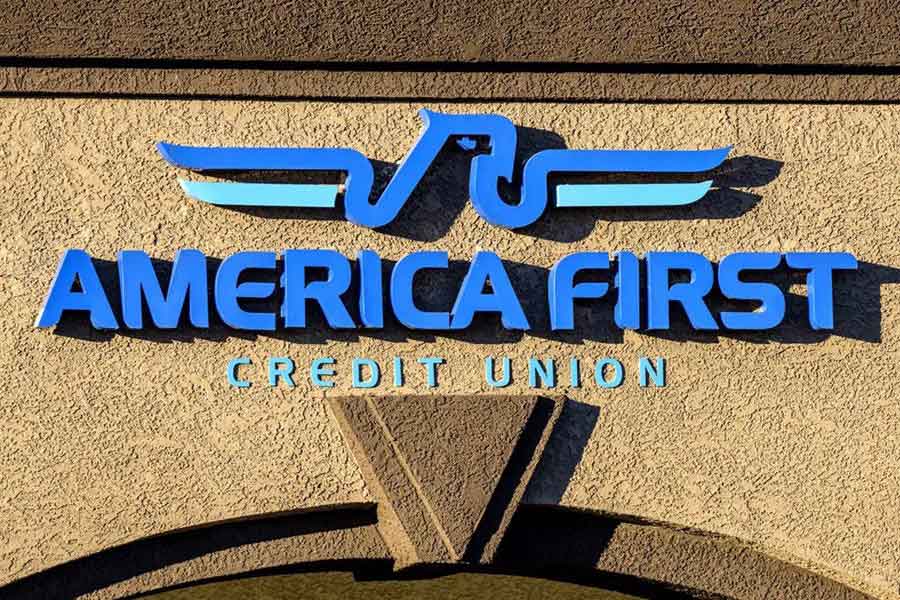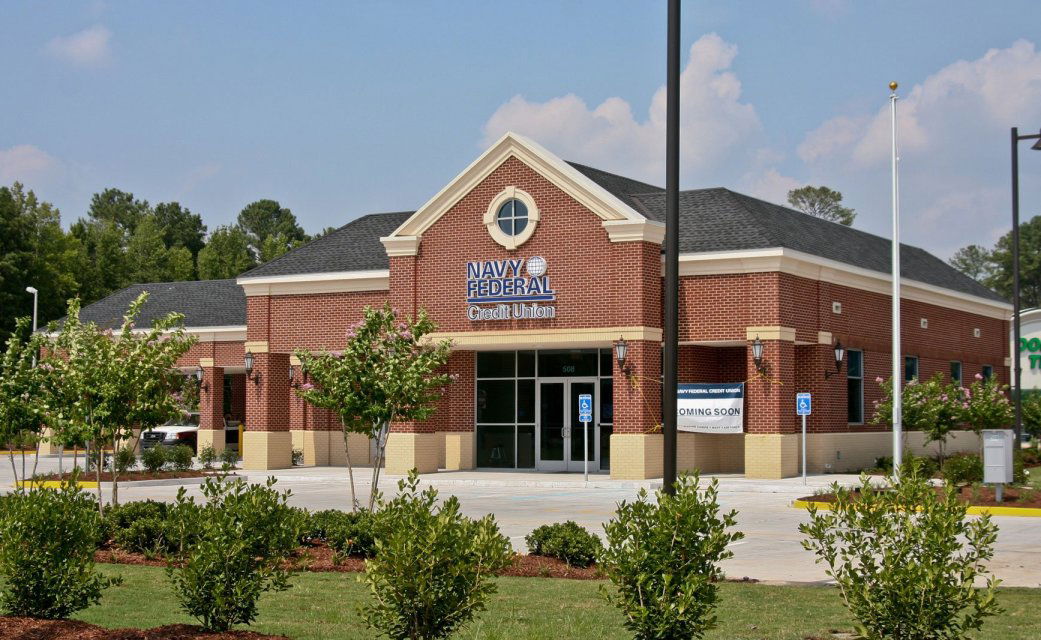In today’s financial landscape, consumers want a more individualized experience that may be lacking in traditional banks. This is one key factor contributing to the rising popularity of credit unions as a viable alternative.

Primarily, credit unions offer customers the opportunity to actively participate in their running, as well as access to more competitive interest rates. There are many other benefits, too.
But before we get into all that, what exactly is a credit union, and how different are they compared to banks?
What is a credit union?
If you’re thinking of joining a credit union, it’s a good idea to know exactly what you’re getting. The major difference between banks and credit unions is that credit unions are owned by the members they serve.
Unlike banks, credit unions are not a business needing to make profit. Instead, they can be defined as member-owned nonprofit financial cooperatives.
Where a bank makes profits, a credit union instead recycles funds back into itself. The result is that credit union members have access to better rates on savings and loans.
Credit unions are also much more personal and community-focused compared to traditional banks. As a credit union member, your deposits in checking and savings accounts actually help other members of your community to buy their first homes and establish businesses.
Because credit unions function as cooperatives, all members get to vote on major governance issues such as electing board members and directors.
What are the benefits of joining a credit union?
Credit union membership comes with several benefits. Some are well-known and immediate, while others might take a bit more time to see. Let’s take a closer look at how a credit union account could improve your life.
Personalized Customer Service
A credit union will have a much smaller customer base compared to a traditional bank. That, along with the fact that they are member-owned financial institutions, means credit union service comes with much more of a personal touch.
Some credit unions also provide great educational resources to help improve the finances of their members. You’re also more likely to have the chance to build a relationship with employees at your credit union, since they will also be members of your local community.
Better Interest Rates
The bottom line for credit unions is not profit, but being self-sufficient and providing good service to its members. This means that instead of making money from customers, excess profits are passed onto customers in the form of competitive rates:
- Lower interest rates on loans. Credit unions often offer better loan rates than most banks. While loan products may be more basic, you can still get mortgages, auto loans, and personal loans at better rates.
- Higher interest rates on savings. Credit unions are a great place to deposit savings, as the interest rates on savings accounts are much higher than normal.
Lower Fees
Credit unions tend to have significantly lower fees across the board. Monthly maintenance fees, opening or closing account fees, and overdraft fees, are often minimal or non-existent with credit unions.
In many cases, opening a checking account with a credit union will cost you nothing.
Better Mortgage Accessibility
Credit unions can sometimes help members overcome barriers that might prevent them from obtaining a home loan. For example, if your credit history is lacking, your credit union might be willing to provide a loan where a bank turns you away.
This is just one aspect of the many relationship-building benefits that come with credit union membership. A credit union will also be more interested in helping you to overcome any difficulties that you may experience when paying off your loan.
Also, it helps to know that when you take out a mortgage with your credit union, that loan stays with them. When you take out a home loan through a bank, your loan is likely to be sold off to a larger lender, with interest proceeds going there instead.
With a credit union, you know that your money is going back into your local community.
Community Oriented
Credit unions are naturally community oriented. Because every credit union is essentially a cooperative, you’re actually an active part of a financial institution. Furthermore, taking into account common membership requirements, credit union members often live in the same community.
This is another reason why credit unions are increasingly popular as alternatives to banks, which rarely bring that sense of community and belonging.
Voting & Governance
Credit union membership means you get to actually have a say regarding how the institution is run. All members can vote on important decisions, including the selection of board members. Credit union members are all equal co-owners.
This is obviously in stark contrast to all traditional banks, which are run exclusively by owners and non-elected board members.
Variety of Service
While credit unions are often thought of as having less products compared to a bank, there actually may be a greater variety of services available. In addition to financial education and counseling, credit unions offer checking accounts, savings accounts, branches with other credit unions, as well as various loans and credit cards.
Many credit unions are focused on providing as much support to their members as possible, and regularly seek feedback on how to improve their services.
Insured Deposits
Just like with FDIC insurance at a bank, a credit union will have regulated deposit insurance. A federally insured credit union will be protected by the National Credit Union Administration, via the National Credit Union Share Insurance Fund. Some state credit unions are also insured by the same body, if not privately.
The NCUSIF is backed by the U.S. government and covers individual member deposits up to $250,000 at all federally insured credit unions.
See also: Best Nationwide Credit Unions of 2024
What to Consider Before Joining a Credit Union
We’ve looked at the many benefits of joining a credit union. It’s only fair to consider that there are some potential downsides, too. Here’s what you should be aware of if you’re considering credit union membership:
Exclusive Membership
Most credit unions are only open for those living or working within a specific community or profession. Although there are exceptions to this, it’s important to know that there may only be a handful of credit unions you can realistically join.
Limited Location Availability
Many credit unions are small institutions, with just one or two brick-and-mortar branches. If you need to conduct in-person business at your credit union, you may have to make a trip out of town. This could also narrow the pool of feasible credit unions you can join even smaller, especially if you like to bank in person.
Fewer ATMs
Unlike large banks, credit unions don’t have extensive ATM networks available. Instead, most credit unions will only have dedicated ATMs attached to a branch.
While you will still be able to use non-network ATMs to conduct basic banking transactions, you’ll be subject to fees for the service.
Limited Technology
One major downside of credit unions is that some of them are lacking in technology. When it comes to websites, mobile apps and online banking options, credit unions may often fall behind compared to big banks.
If online banking is a priority for you, make sure to look for a credit union with well developed online services.
Less Credit Card Options
While some big credit unions will do their best to compete with large banks, smaller credit unions are unlikely to have the same variety of credit cards available.
If you’re set on landing a credit line that comes with big rewards programs and sign-up bonuses, you might be disappointed with a credit union’s offerings.
Bottom Line
Better rates on savings, loans and a personal touch are some of the biggest benefits to credit unions. However, as we’ve seen, there are potential downsides that could disrupt your plans of joining a credit union.
Before making any changes, be sure to research the credit unions in your area. Keep in mind that services and rates can vary widely between credit unions.
Once you’ve found a credit union you can join, you’ll want to compare rates, fees and other details to maximize the benefits.
Frequently Asked Questions
Can anyone join a credit union?
Credit unions are not exactly exclusive clubs, but in many cases there are certain requirements needed to become a member. Generally speaking, large credit unions operating several branches will be easier to join than smaller, localized ones.
Credit unions are designed to serve their communities. As a result, some are strictly for employees of a certain organization, while some are geared to anyone living or working in a designated community.
You can use this website to find credit unions that are local to you, and find out which options you’ve got.
Is it better to keep my money in a credit union or a bank?
The answer depends on your own unique financial needs and priorities. While credit unions often have better rates for savings and loan products, banks don’t have membership exclusivity.
A bank may also just be a more convenient option for you, especially if you’re looking for specialized financial products or slick online banking services.
Are credit unions safe?
Yes. Storing your money in a credit union is just as safe as using a bank, provided your credit union is insured by the National Credit Union Administration. Don’t take it for granted that any credit union you join is suitably secured.




